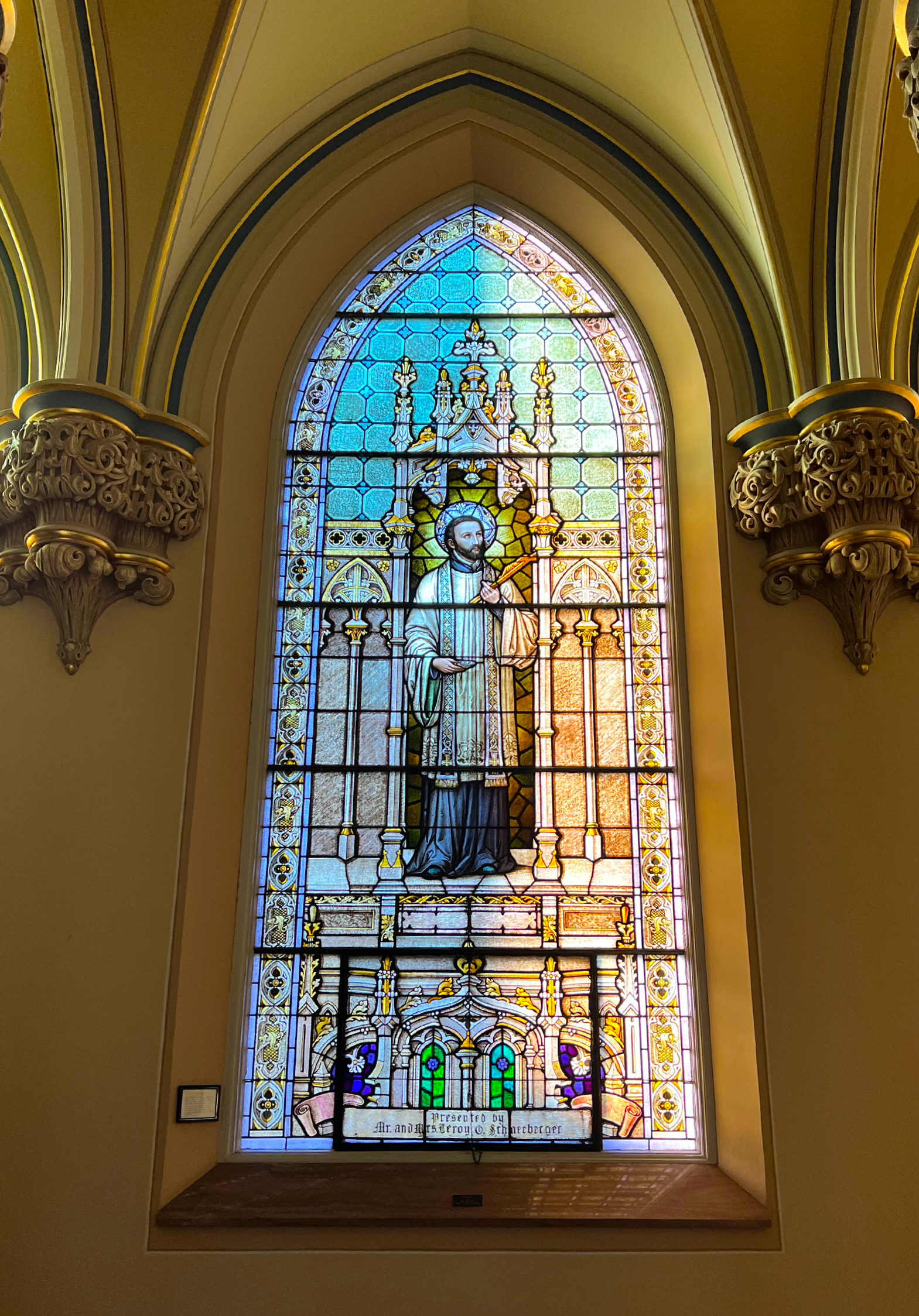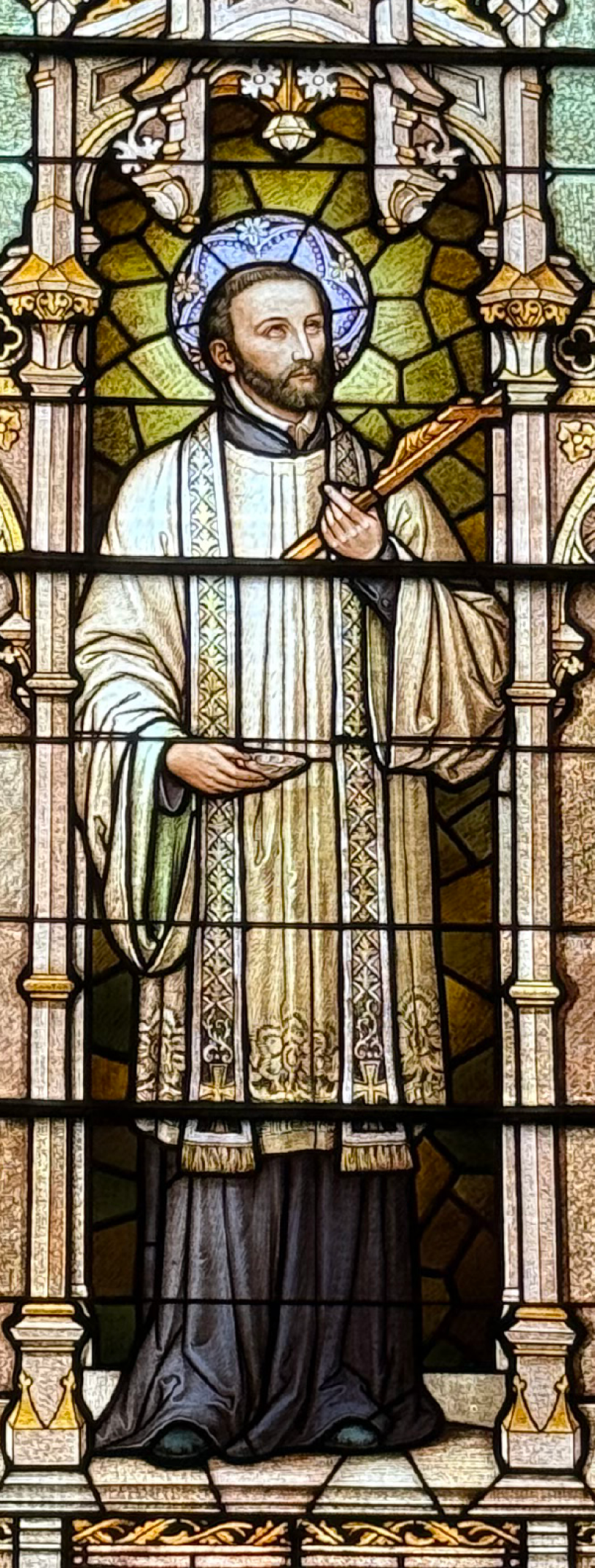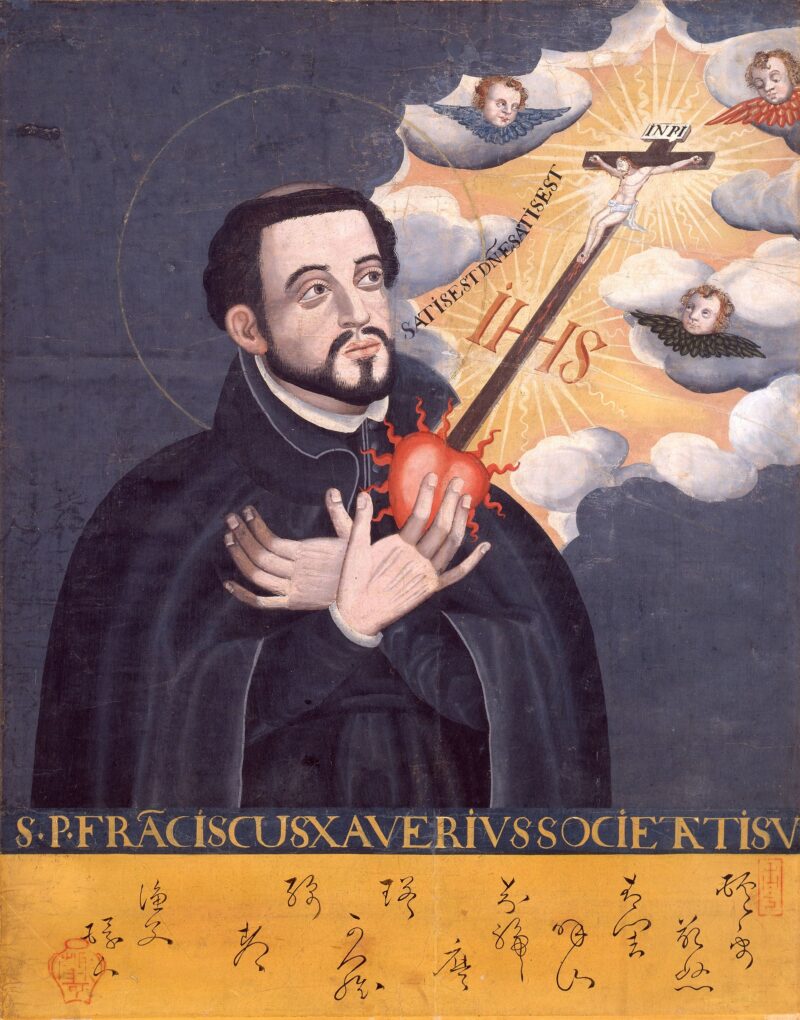
One of the greatest missionaries that Spain ever produced. King John III of Portugal invited St. Francis to evangelize the Portuguese possessions in the Middle and Far East. During the last ten years of his life he established missions in Goa on the Indian Coast, in Travancore, in Malacca, in the Molaccan Islands, and in Japan. The number of converts attributed to him runs in the hundreds of thousands.

Presented by Mr. And Mrs. Leroy O. Schneeberger


A painting of Saint Francis Xavier held in the Kobe City Museum, Japan.
Introduction
St. Francis Xavier, born on April 7, 1506, in the Kingdom of Navarre, was a pioneering Roman Catholic missionary and co-founder of the Society of Jesus (Jesuits). Renowned for his missionary work in Asia, he is revered as a saint in the Roman Catholic Church. His efforts to spread Christianity in India, Japan, and other parts of Asia significantly impacted the religious landscape of these regions.
Early Life and Education
Francisco de Jasso y Azpilicueta, later known as Francis Xavier, was born into a noble Basque family. He studied at the University of Paris, where he met Ignatius of Loyola, who would become his spiritual guide and mentor. Influenced by Ignatius, Francis joined the Society of Jesus, which was then a newly founded religious order dedicated to the renewal of the Catholic Church and propagation of the faith.
Missionary Work
India and Southeast Asia:
-
In 1541, Francis Xavier set sail for Goa, India, as a missionary. He worked extensively to enhance the Christian community there, focusing on the education and conversion of the local population
-
His approach was pragmatic, learning local languages, and understanding indigenous cultures to effectively communicate Christian teachings.
Japan:
-
In 1549, Xavier traveled to Japan, introducing Christianity to the islands. He faced considerable cultural and linguistic challenges but succeeded in establishing a small but significant Christian community.
-
His work laid the foundation for future missionaries in Japan, although political changes later led to the persecution of Christians
Efforts in China:
-
Ambitious to spread Christianity further, Xavier planned a mission to China. However, he fell ill and died on December 3, 1552, on Shangchuan Island, before reaching the mainland.
Legacy
-
Canonization: Francis Xavier was canonized as a saint by Pope Gregory XV in 1622, and he is often invoked as the patron saint of missionaries.
-
Cultural Impact: His work in Asia left a lasting cultural and religious legacy, with Xavier seen as a bridge between Western and Eastern cultures. He is remembered for his humility, dedication, and innovative approaches to evangelism.
-
Institutions: Numerous educational institutions worldwide are named in his honor, reflecting his commitment to education.
